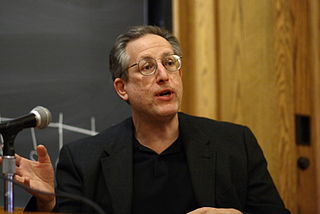A Quote by Feisal Abdul Rauf
When I arrived in America, I experienced serious culture shock. For someone with a religious upbringing, the 1960s were an extremely difficult time. Even though religion was a big part of the civil rights and peace movements, in my college religion was treated as irrelevant, hopelessly stodgy, and behind the times.
Related Quotes
Where it is the majority religion, Islam does not recognize religious freedom, at least not as we understand it. Islam is a different culture. This doesn't mean that it's an inferior culture, but it is a culture that has yet to connect with the positive sides of our modern Western culture: religious freedom, human rights and equal rights for women.
Every religion I know of has changed its views with respect to concrete controversies over long periods of time. People's views about the morality of homosexuality are likely to undergo some change, even though they're making judgments based on their religious beliefs. Because in fact, religion is an extremely durable, and yet flexible, way of trying to apprehend what's good and what's bad in the world. In fact, its durability comes from its flexibility. Now, speaking from inside a religion, it's hard to talk that way.
Bill Maher is right to condemn religious practices that violate fundamental human rights. Religious communities must do more to counter extremist interpretations of their faith. But failing to recognize that religion is embedded in culture — and making a blanket judgment about the world’s second largest religion — is simply bigotry.
Religion is important for humanity, but it should evolve with humanity. The first priority is to establish and develop the principle of pluralism in all religious traditions. If we, the religious leaders, cultivate a sincere pluralistic attitude, then everything will be more simple. It is good that most religious leaders are at least beginning to recognize other traditions, even though they may not approve of them. The next step is to accept that the idea of propagating religion is outdated. It no longer suits the times.
My friends, to those who say that we are rushing this issue of civil rights, I say to them we are 172 years late. To those who say that this civil-rights program is an infringement on states’ rights, I say this: The time has arrived in America for the Democratic Party to get out of the shadow of states' rights and to walk forthrightly into the bright sunshine of human rights.
For a long time it has been known that the first systems of representations with which men have pictured to themselves the world and themselves were of religious origin. There is no religion that is not a cosmology at the same time that it is a speculation upon divine things. If philosophy and the sciences were born of religion, it is because religion began by taking the place of the sciences and philosophy.
In Europe, the Enlightenment of the 18th century was seen as a battle against the desire of the Church to limit intellectual freedom, a battle against the Inquisition, a battle against religious censorship. And the victory of the Enlightenment in Europe was seen as pushing religion away from the center of power. In America, at the same time, the Enlightenment meant coming to a country where people were not going to persecute you by reason of your religion. So it meant a liberation into religion. In Europe, it was liberation out of religion.
To speak specifically of our problem with the Muslim world, we are meandering into a genuine clash of civilizations, and we're deluding ourselves with euphemisms. We're talking about Islam being a religion of peace that's been hijacked by extremists. If ever there were a religion that's not a religion of peace, it is Islam.






































